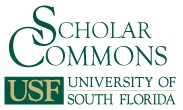Keywords
Statistics Education, Sociology, Quantitative Social Sciences
Abstract
The need to close the quantitative literacy gap for sociology majors is a perennial topic in discussions of undergraduate sociological training. More and better statistical education with a greater focus on active research and engaged analysis is recommended by the major disciplinary association, as well as virtually all pedagogical agencies. This project explores these differences in the implementation of these recommendations, employing a survey (n=90) to report on the structure of quantitative training for undergraduates majoring in sociology. It finds that the type and extent of this education available to, and required for, sociology majors varies widely across not only institutions but by type of institutional context. The pedagogical resources and tools employed also vary widely. It explores the curricular elements that departments view as the strengths and weaknesses of their quantitative programs in terms of perceived student outcomes and competencies.
DOI
http://doi.org/10.5038/1936-4660.10.2.8
Recommended Citation
Delia Deckard, Natalie M.. "Statistics Education for Undergraduate Sociology Majors: Survey Findings across Institutions." Numeracy 10, Iss. 2 (2017): Article 8. DOI: http://doi.org/10.5038/1936-4660.10.2.8
Creative Commons License

This work is licensed under a Creative Commons Attribution-Noncommercial 4.0 License

